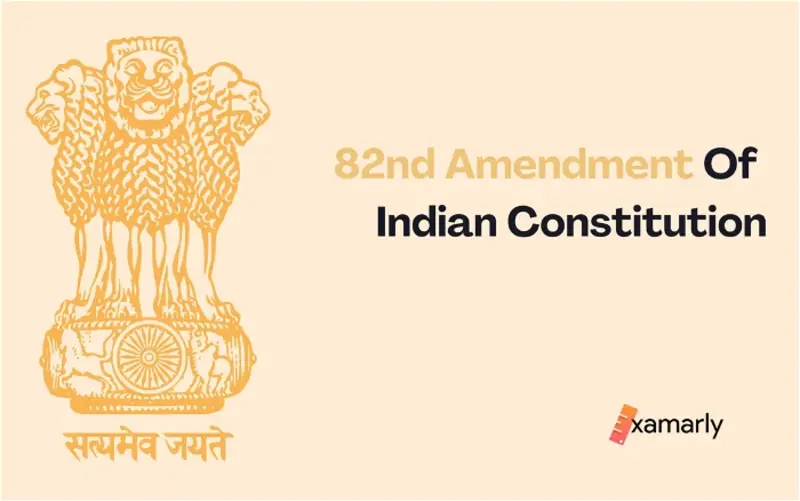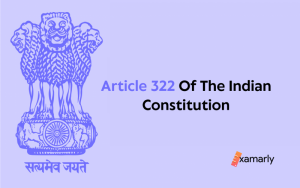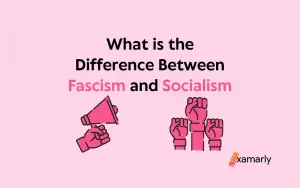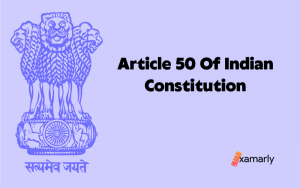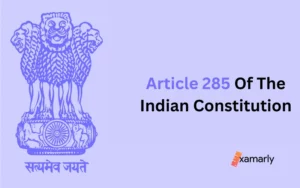In terms of appointments and promotions for members of Schedule Castes (SCs) and Schedule Tribes, the 82nd Amendment of the Indian Constitution lowers the qualifying scores and evaluation standards for reservations (STs). The act was enacted in the fifty-first year of the Indian Republic.
Aspirants of UPSC must read this article to learn more about the 82nd amendment of the Indian Constitution as it will help them with their UPSC preparation.
What is the 82nd Amendment of the Indian Constitution?
The Constitution (Eighty-second Amendment) Act of 2000 is the official name that this legislation may go by. 82nd Amendment amended article 355 of the Indian Constitution.
The amended version states that none in Article 355 is construed as prohibiting the State from providing for a relaxation of the qualifying scores for exams, services, or promotions in favour of SC/ST people.
This constitutional amendment came into effect on 8th September 2000.
Objects and Reasons
The Scheduled Castes and Scheduled Tribes have benefited from the ease of qualifying marks as well as assessment requirements in areas of reservation in promotion.
In its verdict on 1-10-1996 in the case of S. Vinod Kumar vs Union of India, the Supreme Court ruled that, in light of the directive in Article 335 of the Constitution, such relaxations in the rules governing reservations in promotions were not allowed under Article 16(4) of the Constitution.
The Supreme Court’s Constitution Bench of nine judges heard the case of Indira Sawhney and others.
Union of India and others, established the legislation regarding exemptions of qualifying marks and norms of evaluation in matters of reservation in promotion, as per the Apex Court.
According to paragraph 831 of the Indira Sawhney ruling, the directive provided in Article 335 of the Indian Constitution does not let such relaxations get authority under the fourth clause of Article 16.
These exemptions had to be rescinded effective from July 22, 1997, in order to execute Supreme Court rulings.
A variety of sources such as Members of Parliament represented the government in the context of the harmful effect of the order of 22.07.1997 in the support of Scheduled Casts and Scheduled Tribes.
The Government has assessed the situation in light of the numerous representation and chose to seek a change to the constitution in an effort to reinstate the relaxations that were revoked in accordance with directives given by the Department of Personnel and Training on July 22, 1997.
Relatable linked articles for UPSC Preparation are tabulated below:
Important Provision
82nd Amendment amended Article 355. Nothing in Article 355 prohibits making provisions in favour of individuals of the Scheduled Castes and the Scheduled Tribes for a reservation in aspects of promotion to any class or classes of services.
Also, for posts in link with the matters of the Union or of a State, including lessening the evaluation benchmarks or relaxing the qualifying marks in any examination.
Conclusion
The State revised the Constitution once again in 2000. The State amended Article 335 with the 82nd Amendment of the Indian Constitution to include a proviso.
The claims of SCs/STs to services and positions must be commensurate with overall administrative effectiveness, per Article 335.
The proviso it introduced said that nothing in Article 335 would prevent the State from reducing the standard of evaluation for quota in matters of promotion to people of the SC and STs or easing the qualifying criteria.
The Supreme Court’s Vinod Kumar decision from 1996, which specifically forbade relaxations in qualifying marks in areas of reservation in promotion, was overturned by the proviso to Article 335.
FAQs
What is reservation in India?
Reservation in India refers to the affirmative action policies adopted by the Indian government to promote the representation of historically marginalized communities, such as Scheduled Castes (SCs), Scheduled Tribes (STs), and Other Backward Classes (OBCs), in education and employment.
What are Scheduled Castes, Scheduled Tribes, and Other Backward Classes?
Scheduled Castes (SCs) and Scheduled Tribes (STs) are indigenous communities that have been socially, economically, and educationally disadvantaged for centuries in India. Other Backward Classes (OBCs) are communities that face similar disadvantages but are not officially recognized as scheduled castes or tribes.
How does the reservation system work in India?
The reservation system in India provides for a certain percentage of seats in educational institutions and government jobs to be reserved for members of SCs, STs, and OBCs. This percentage varies based on the particular institution or job and is periodically reviewed and revised by the government.
Is the reservation system applicable to all types of educational institutions and government jobs?
Yes, the reservation system is applicable to all types of educational institutions, including universities and colleges, and all types of government jobs, including central and state government jobs.
Is there a quota for general category (unreserved) candidates?
Yes, there is a quota for general category candidates, which is the remaining percentage of seats or jobs that are not reserved for SCs, STs, and OBCs.


